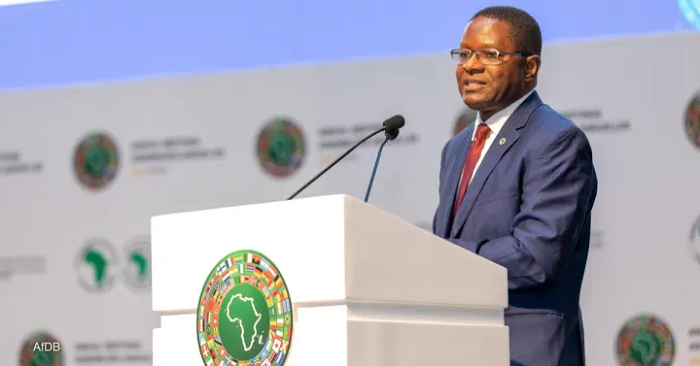The African Development Bank (AfDB) has projected that the growth rate of Nigeria and other West African countries will increase from an estimated 3.6 percent in 2023 to 4.2 percent in 2024 and 4.4 percent in 2025. This optimistic outlook was presented by Kevin Urama, AfDB Vice-President and Chief Economist, during the launch of the African Economic Outlook 2024 report at the bank’s Annual Meetings in Nairobi, Kenya.
The report, unveiled on the sidelines of the event themed “Driving Africa’s Transformation: The Reform of the Global Financial Architecture,” was covered by the News Agency of Nigeria.
Urama noted that the projected growth for West Africa has been upgraded by 0.3 percentage points for 2024, reflecting stronger economic performance in major economies such as Côte d’Ivoire, Ghana, Nigeria, and Senegal. Despite facing multiple challenges, African economies have demonstrated resilience, with average growth expected to stabilize at 4.0 percent in 2024-2025, up from 3.1 percent in 2023.
The slowdown in growth from 4.1 percent in 2022 to 3.1 percent in 2023 was attributed to high food and energy prices, the impacts of Russia’s invasion of Ukraine, climate change, extreme weather affecting agriculture and power generation, and political instability in some countries. However, real GDP growth is anticipated to rebound to 3.7 percent in 2024 and 4.3 percent in 2025 as these factors’ impacts fade.
Urama highlighted that East Africa, Southern Africa, and West Africa will lead the projected rebound in Africa’s average growth. He noted that 40 countries are expected to see higher growth in 2024 compared to 2023, with 17 economies projected to grow by more than five percent in 2024, potentially rising to 25 in 2025. Africa is anticipated to maintain its position as the second fastest-growing region globally, after Asia, with projected GDP growth exceeding the global average of 3.2 percent in 2024.
For oil-exporting countries, average growth is expected to decline from 3.7 percent in 2023 to 3.5 percent in 2024 but could rebound to 4 percent in 2025. The 2024 slowdown is attributed to lower oil production targets set by OPEC and disruptions in South Sudan and Angola. Meanwhile, growth in non-oil resource-intensive economies is projected to improve significantly, driven by a rebound in China’s demand for metals and minerals related to smart grids and construction expansions.
Urama’s insights reflect a cautiously optimistic outlook for the region, emphasizing the importance of strategic economic reforms and resilience in navigating global challenges.






















